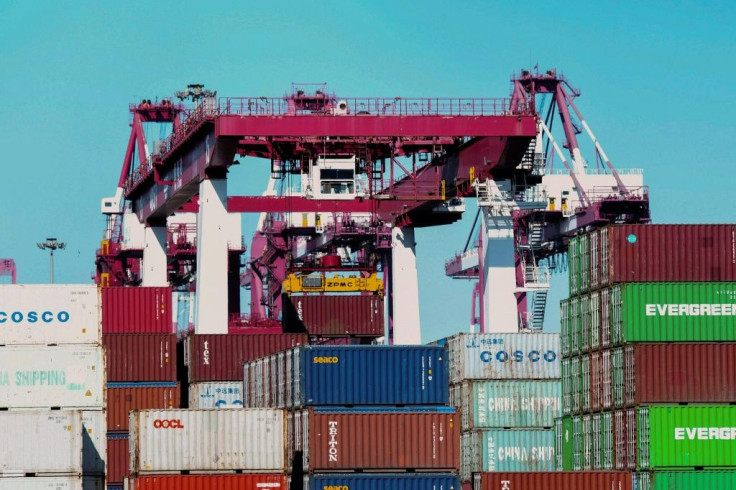China Says 'In Depth' Talks On Tariffs Removal Underway With US

China Thursday said it is discussing with the US "in depth" about a first phase trade deal and a potential rollback of tariffs, despite recent mixed messages over the lingering trade impasse.
Beijing and Washington have been embroiled in an 18-month trade war which has weighed on the global economy, and have slapped punitive tariffs on hundreds of billions of dollars in two-way trade.
Amid signs of easing tensions, the Chinese commerce ministry last week said the two sides had agreed on a plan to roll back tariffs in stages -- only to have US President Donald Trump deny that any such plan had been made.
Trump warned on Tuesday that he could even increase tariffs further if a partial deal with Beijing failed to materialize.
But China's commerce ministry spokesman Gao Feng sounded a more positive note on Thursday, and said Beijing was "willing to work together with the US... and to create conditions for the first phase of the agreement."
"If the two parties reach a first phase agreement, the extent of the tariff cancellations should fully reflect the importance of the first phase agreement," Gao said at a regular briefing in Beijing.
"The two sides are discussing this issue in depth."
Trump last month held off on a round of tariff increases, and White House officials have suggested that as part of the current mini-deal he could delay fresh tariffs on $160 billion worth of Chinese goods planned for mid-December.
The partial deal could also include promises from Beijing to increase purchases of US farm goods and better protections for intellectual property rights.
Trump had planned to sign a pact with China's President Xi Jinping on the sidelines of the now-cancelled summit in Chile this month.
Since that summit cancellation no other meeting between the two has been announced.
Gao said the elimination of tariffs was "in line with the interests of producers and consumers, in line with the interests of China and the United States, and in line with world interests."
Economic data show the uncertainty created by the dispute between the world's two biggest economies is undermining global growth.
The International Monetary Fund has cut its global growth forecast and warned that implementing all the announced tariffs would cut $700 billion out of the world economy next year.
Separately, China's customs administration on Thursday said that it was removing restrictions on US poultry imports and "allowing US poultry imports that abide by the requirements of our country's laws and regulations."
© Copyright AFP 2024. All rights reserved.





















